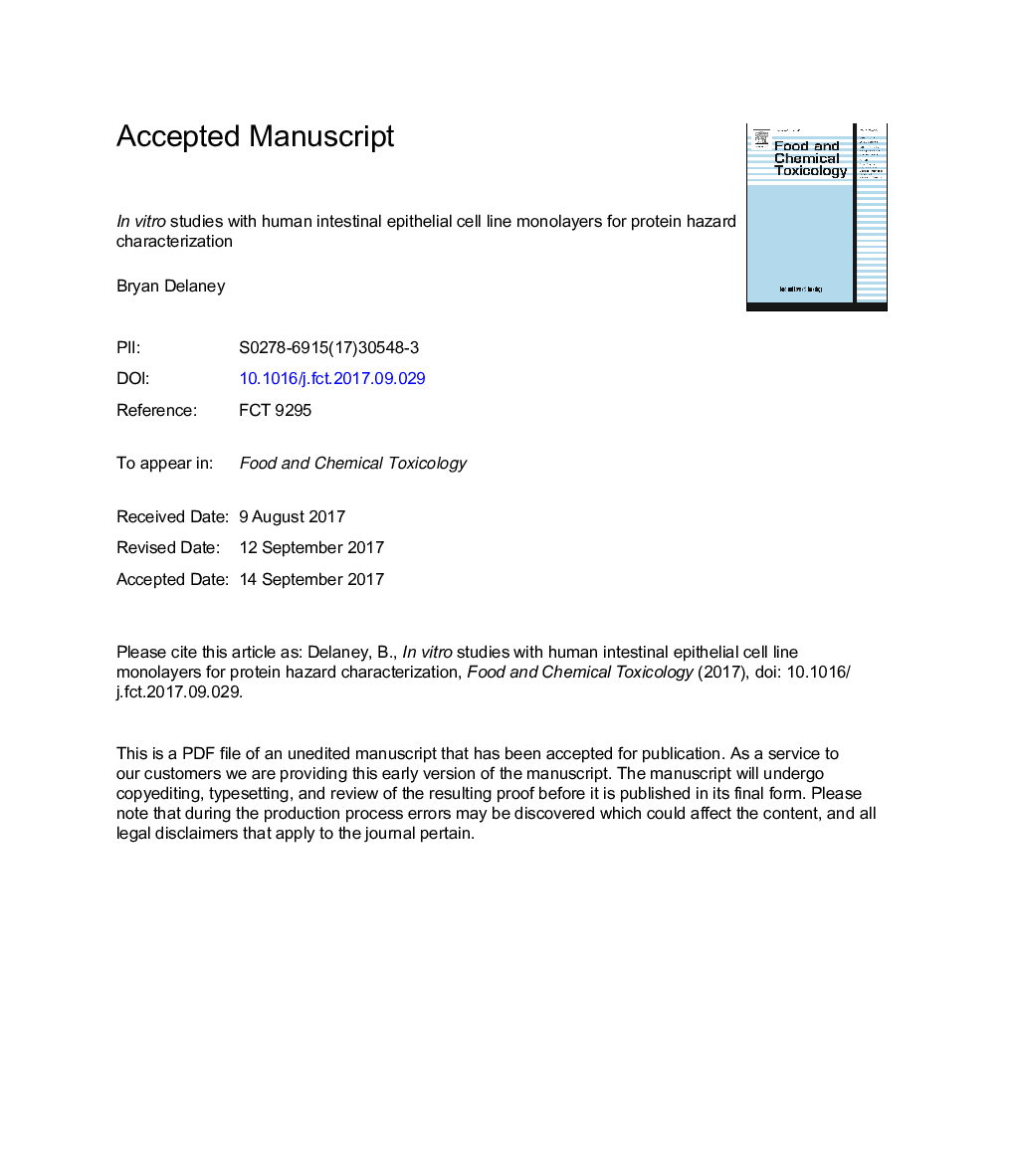| Article ID | Journal | Published Year | Pages | File Type |
|---|---|---|---|---|
| 8548527 | Food and Chemical Toxicology | 2017 | 40 Pages |
Abstract
Evaluating the safety of newly expressed proteins in genetically modified (GM) crops is conducted prior to commercialization to determine whether they could present a hazard upon consumption. A multicomponent, weight of evidence approach has been applied to individual proteins that has often included acute oral toxicology studies. Based on resources required to produce and purify the proteins, the number of animals necessary for these studies and the fact that no evidence of hazard has been observed for any of the proteins tested to date, it is questionable whether acute toxicology studies should be conducted for all proteins. This article reviews the chronology of the acute toxicology study from its origins into application for hazard assessment and classification of individual substances including proteins expressed in GM crops. It further proposes that a physiologic approach using cultured intestinal epithelial cell (IEC) line monolayers as an in vitro model of the gastrointestinal system provides results relevant to the hazard characterization of proteins when necessary. Benefits of this approach would include reduced quantities of proteins for testing and minimization or elimination of animal studies while maintaining confidence in the safety assessment process.
Keywords
Related Topics
Life Sciences
Agricultural and Biological Sciences
Food Science
Authors
Bryan Delaney,
